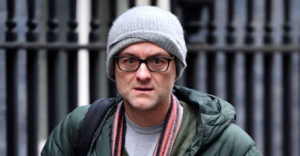In my late twenties, I became clinically depressed and prone to bouts of suicidal ideation — “suicidal”, in un-medical English. From 1993 to 1998 I lived in northern Italy; paradise, apparently, but to me it felt more like a J.G. Ballard novel.
Everyone was partnered, successful and “shiny”. I — an Iris Murdoch-obsessed homosexual statistician — lay on the lakeside beach, dully hungry from the latest pointless attempt to lose weight, surrounded by the mountains about whose majesty everyone insisted. I saw nothing but rocks. No bildungsroman lurked, waiting to be written: just pointlessness mixed with failure.
That sense of being “outside, looking in” at what others took for granted and which they claimed was the obvious key to contentment at times became unbearable.
Or almost so. I moved back to the UK where I had my heart broken one last time, took a few years’ worth of SSRIs, got over the death of my father (the spark that lit the fire of my depressive proclivity), found purpose in work and salvation through exercise, and met Mr Keith.
I’m a good Conservative, staunchly lower-middle class, the class whose strongest and perhaps most biddable instinct is not to cause a fuss. If someone had said to me at certain points between 1998 and 2002 “Would you like us to help you kill yourself?”, I’m not sure how I would have replied.
“What would I have done?” is the thought I cannot banish since Parliament voted yesterday in favour of Kim Leadbeater’s “Assisted Dying” Bill. To be or not to be; that, it turns out, is not the only question. Of more immediate attention, thanks to Leadbeater and the 330 MPs who supported her, is a semi-corollary: if the answer is “not to be”, Parliament believes the NHS should be allowed to “assist” you. That is: the British state should be permitted to kill you.
Be permitted to kill you “if you so desire and are terminally ill”, the proponents of the Bill would append. I am opposed to the Bill both in its own terms but also because I doubt the very clause “if you so desire” would survive three months of judicial activism.
While life has turned out better than I dared hope, there were those earlier points in time when it didn’t feel that way, and I owe it to that younger Graeme not to pretend that he never existed. A state with agents whose targets would be met by hitting their quotas for “assisted suicide” would have smacked its lips had I wandered into one of its clinics.
That objection is swept aside by Leadbeater. As currently drafted, the Bill is designed only for very strict cases where organic illness will end a citizen’s life in a short period of time. Depressed patients wouldn’t qualify. To which there are a couple of pertinent responses, the core of my objection. As Dominic Cummings puts it on X:
If struggling on assisted dying: wd you trust the Whitehall of 45 minutes, financial regulation, Iraq, Afghanistan, Brexit negotiations, ‘Online Harms’, covid & ukraine – with an NHS in meltdown & *already* encouraging families to put ‘do not resuscitate’ orders on healthy people…
— Dominic Cummings (@Dominic2306) November 28, 2024
Quite. But if that’s too pithily expressed, then supporters of the Bill must answer the question: “Why would the UK be any different to other Western democracies which have enacted such legislation?”
Whether one looks at Canada, Belgium or the Netherlands, similar Bills all started off making it very clear that state-sanctioned death would be imposed only if a compos mentis patient asked for it, and only in close-to-involuntary-death circumstances; yet in every case it is documented that “mission creep” has now enabled cases I find too disturbing to describe in words. Even “cases” is a cowardly word. As the Bill supporters celebrate their “win”, how do they know that our fantastically activist-driven court system could not cause such outcomes here?
The analogy made with the euthanising of pets is telling, here. But not for the reason (“We don’t let our animals suffer, so why do we let our parents?”) they think. Two great wee cats, Dave and Kitty, spent nearly 15 years as our household gods and without shame I loved them. Both became elderly-cat ill (Dave — cancer; Kitty — kidney disease) and died within a year of one another. They were euthanised, by our wonderful vet who performs home visits to spare the animals stress in their final hours.
The argument in favour of the Bill proceeds to say “And why can’t we do that for humans?”
In fact, I believe in many cases we do, which I’ll return to below. But the point about my cats’ deaths is that they were loved. What about the animals which aren’t? What do you think happens to them? Kitty was incontinent for the last six months of her life. It made our house stink and we spent hours every week mopping up. We welcomed the burden. It’s the price of love.
Can we guarantee that this will apply to every incontinent, elderly human? I believe the moral case for the Bill fails if a single human were to be killed through spurious arguments about “burden of care”. (I am no utilitarian.) There is a statistical correlation between the propensity to commit cruelty to animals and to humans. Those who have no qualms about killing their “nuisance pets” will be able, I’m sure, to find forms of words that justify the same case for their relatives, especially those left in the arms of the state’s Care Homes. For how much would such deaths count in Parliament’s new calculus of suffering?
This dystopian calculus seems to sit perfectly within the age we inhabit. It’s like the country has accelerated into the Ballard novel I inhabited in the late Nineties, even as I’ve matured into something out of P.G. Wodehouse.
So it isn’t surprising that a state which sanctions Hate Marches in its capital thoroughfares, loud with chants for death; that rips down its built history (Smithfield is going! What next? St Paul’s?) and whose museums it permits to linger only that they may hector its citizens about the sin of their supposed racism… It doesn’t surprise me that such a society would eventually find its apotheosis in the form of this Bill. If the culture upstream celebrates its own extinction, why are we surprised that politics downstream finds a way to codify your own obliteration into law.
Welcome to the age of death: look at the adverts on the Tube, grotesque beyond the imagination even of P.D. James, whose Children of Men novel foresaw and described our childless pitilessness in many ways. Even she didn’t imagine that the “Quietus” would be represented by adverts showing an ecstatic young woman dancing around her fitted kitchen in joy that one day the state will kill her.
These adverts defy explanation, other than that we have reached end-stage nihilism. If we are presenting death as an aspiration, ours is almost by definition a culture that cannot be trusted with assisted dying procedures.
And, yet, there are already people that we can trust with ours. If you’ve had the privilege of being with someone at the end of their life you’ll know what “palliative care” means: the use of opioids to prevent pain, a side-effect of which is, eventually, the suppression of respiratory function. It is the greatest gift that medical professionals do for us. The crude mechanics of a Parliamentary Bill will rip apart the near-sacred, and sometimes silent, understanding between patient, doctor and carer.
Should I meet my end through a painful, lengthy condition like a cancer with no chance of treatment, I want that end to follow a conversation between myself and my physician — or my physician and my (power of attorney holding) spouse — and I want it to be about managing my pain, or my agitation. I’m completely aware of what that means and the very good reasons why it’s impossible to spell it out. With respect to Leadbeater, no MP has the right to insert their desires into that space.
Anyway, the Bill isn’t about palliative care, which is telling. It doesn’t guarantee that its extent won’t creep beyond the will of its writers. It represents one end of a slippery slope, in other words.
“I don’t want to be a burden,” I’d think to myself, lying on that godforsaken Italian beach. Either to myself, or to others. How tempting to slip under the water and stop being a nuisance.
But we’re all burdens — that’s the point of love. To the extent that we suffer pain at the end of our lives, then that pain must be ameliorated — as it can be — even should such amelioration shorten our existence. A Royal Commission into Palliative Care, and how to improve it, would be welcome.
That will not be the outcome of this Bill, should it become law. It will give power to Government to bring about your death, and for such a killing to be entirely legal. That’s not a state I want to be in and however much you’re suffering, I don’t wish you to be in it either.
Disclaimer
Some of the posts we share are controversial and we do not necessarily agree with them in the whole extend. Sometimes we agree with the content or part of it but we do not agree with the narration or language. Nevertheless we find them somehow interesting, valuable and/or informative or we share them, because we strongly believe in freedom of speech, free press and journalism. We strongly encourage you to have a critical approach to all the content, do your own research and analysis to build your own opinion.
We would be glad to have your feedback.
Source: UnHerd Read the original article here: https://unherd.com/




